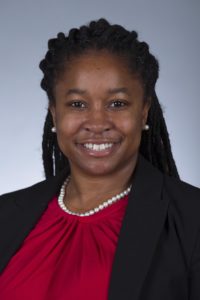Common Ground: The Shared Language of Agriculture
 Growing up in rural east Texas, the legacy of George Washington Carver permeated my childhood. I hear and feel the echoes of Carver’s life story as a parallel to my own ancestors.
Growing up in rural east Texas, the legacy of George Washington Carver permeated my childhood. I hear and feel the echoes of Carver’s life story as a parallel to my own ancestors.
Grandpa Sol, my great-grandfather three times removed, was born into slavery in 1862, two years before Carver was believed to be born. During the height of the Jim Crow South era, in a rural America that saw little value in the contributions of black folks, Grandpa Sol persisted. Over time, he purchased 200 acres of land in east Texas, using it to feed not only his family, but also the families of those who deemed him “less than.”
My grandfather benefited from Carver’s creation of the Jessup Wagon, a fully equipped traveling experiment station, as its use made its way to Texas via extension agents at Prairie View A&M University. This knowledge was transformative in the lives of many southern black farmers.
Through my maternal grandfather, the ways of Grandpa Sol were passed to us: a sense of pride and respect for the land. My extended family still owns and works the land of my forefathers. All that I am, and all that I will become, is tied to the land.
My connection to the land is what connects me to others in agriculture. My forefathers and foremothers were not able to attend college or get an education beyond eighth grade. They understood, just as Carver said: Education is the key to unlock the golden door of freedom.” They birthed a generation of extension agents, community developers, farmers and agricultural educators.
I am honored to walk in the legacy of these ancestors and to inspire future generations through my work in the college. As assistant dean of diversity, I lead the college in finding our universal language ad using it to build trust and a shared community.
George Washington Carver was all about this. As the first African-American student at Iowa State, it was hard to be a person of color in a very white space. He was always thought of as “less-than.” How do you carry that weight? How do you find a way to be respected and valued? Where is the common ground? For Carver, it was agriculture.
Agriculture is still part of our shared language in the college. We are all still grounded in our love and passion for agriculture and life sciences. Now, we must build community around this fact. We still have challenges. But we have hope in our sense of community, the shared values of feeding the world and the drive to come together to make the world a better place.
Just as Carver weaved through the fabric of my family, so too has he impacted generations across the globe. Carver’s legacy lives on. It’s in those students of color who yearn to see their reflection in the agricultural industries, in those who dare to be the “first,” in those who challenge conventional norms and in those who show the value and purpose in even the smallest of God’s creations. His legacy is in those who dare to dream.
Carver’s life and legacy shows us what is possible, what is hopeful and what can be accomplished. It shows us, as Carver said: “When you do the common things in life in an uncommon way, you will command the attention of the world.”



